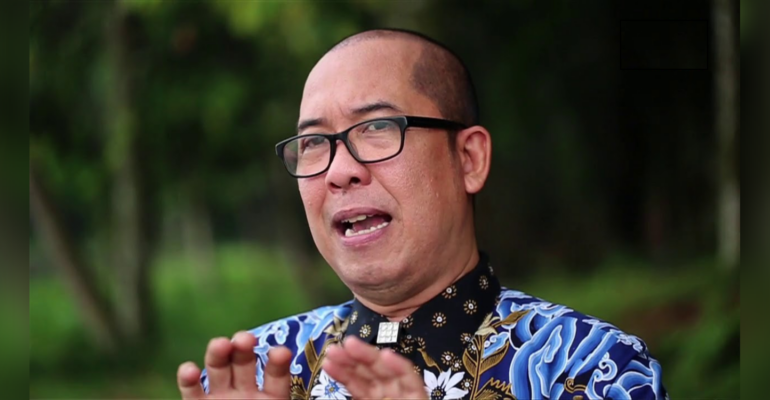IPB University Landscape Architecture Lecturer Gives Tips to Save Water Usage for Households

Water is an invaluable source of life for humans and other living things, as well as for the sustainability of the ecosystem. The use of water at home is very important for daily needs, such as eating and drinking, bathing, washing and others. However, with global climate change and increasing human population growth, the availability of clean water is increasingly threatened.
Using water wisely at the household level needs to be implemented to maintain the availability of water in a sustainable manner. Therefore, IPB University lecturer from the Department of Landscape Architecture, Prof Hadi Susilo Arifin, provides seven tips for saving water at the household scale.
“We start from daily activities such as bathing. When taking a bath, using a shower is much more water-efficient because the water spray from the shower is more effective in washing the body than using a dipper. In the same duration of time, the amount of water is less with a shower than with a dipper, so it is more efficient,” said Prof Hadi, Head of the Landscape Management Division.
He emphasised that showers are more water-efficient because they can spray water evenly on the body without requiring a lot of water. This will reduce water wastage when showering.
Prof Hadi also mentioned that we can utilise increasingly sophisticated technology to save water. Some of these include no-rinse laundry soap, sensory taps, and digital showers.
“In hotels in the Netherlands, the shower faucets have a digital display that shows the amount of water used in litres while the shower is in use. This becomes a control for yourself,” he said. So when you are cleaning your body with soap, or washing your hair with shampoo, you should stop the shower for a while.
The use of water in the household, actually not disposable disposed of. Instead, it can be re-used. A simple example is that water used for washing rice (leri) is very useful for watering ornamental plants. Water from washing clothes can also be used to water grassy lawns or plants.
Prof Hadi said that we can also utilise water storage from air conditioners (AC). In eight hours, a 1/2 PK AC installed in a 3×4 metre room can produce 20 litres of pure water (H2O). The pure water has no mineral content in it. The AC water can be used for watering plants or other non-consumption purposes.
In addition, rainwater harvesting can also be done to save water. Rainwater harvesting can be done using a vessel or water tank. By collecting rainwater, at least, households have water reserves according to the storage load in their respective homes. Rainwater storage, as raw water, can also be used for various purposes such as bathing, washing, and watering plants.
Prof Hadi also explained from the aspect of environmental governance for water management, namely by implementing a rain garden system in the yard. Rain garden is a garden that uses plants as phytoremediators, under the garden equipped with various layers of materials such as gravel, sand and fibre. The garden is able to filter and drain rainwater into the reservoir below. Thus, the resulting water that has better quality can be utilised and treated before entering the waterways.
“Of course, every tip requires innovation. Areas that lack water sources or often experience drought have usually adopted water-saving innovations. One example is Australia,” said Prof Hadi Susilo Arifin, who is also the Chairman of the Master’s Programme in Natural Resources and Environmental Management (PSL) and Fellows CTSS IPB University.
Prof Hadi continued, while making savings, we must also pay attention to the quality of water at home. He suggested ensuring that the water used is in accordance with health standards and does not contain harmful substances.
By applying water-saving tips at home, we contribute to the conservation of water resources and maintain the availability of clean water for future generations. Moreover, these measures can also help reduce water and energy bills, thus providing dual benefits for the environment and family finances. (IAAS/RUM)



